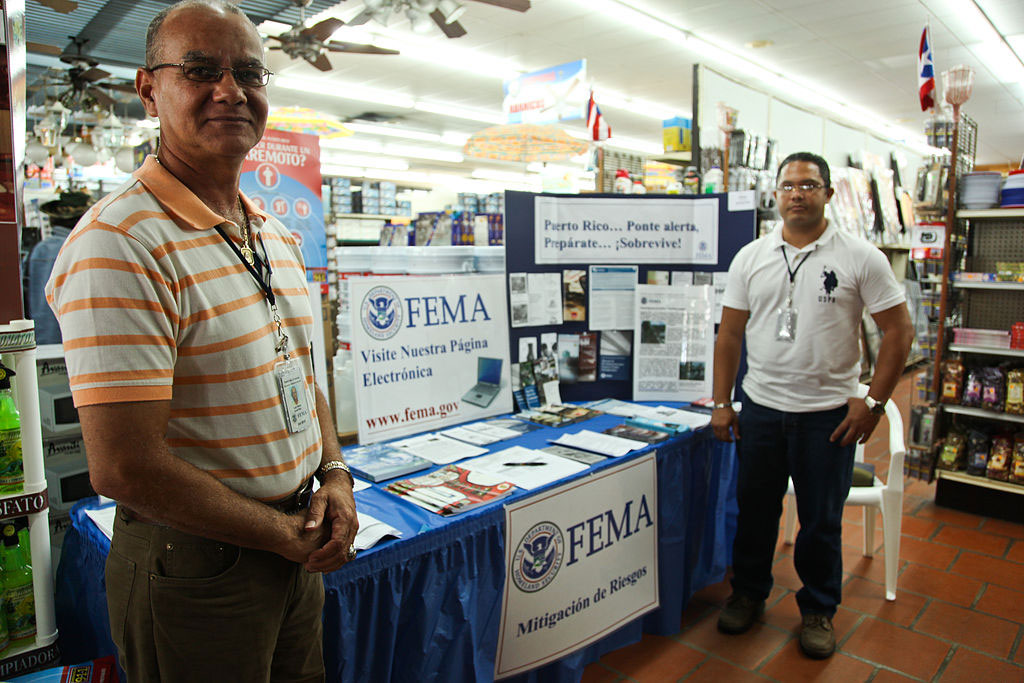
May 8, 2018; NBC News
In order for a homeowner to receive FEMA benefits after a disaster, they must produce a valid deed to the home, or an approved alternative:
FEMA verifies ownership through inspection, automated public and government records or submitted documents such as:
- Deed, title or lease.
- Bill of sale or land installment contract.
- Mortgage payment booklet, property tax receipt or property tax bill.
- Last will and testament (along with a death certificate) naming applicant heir to the property.
- Real property structure insurance.
As a last resort, FEMA may accept a self-declaration, which includes a complete explanation of the history of the home for the applicant, length of time at the residence, and why there is no documentation. However, some residents of Puerto Rico have not been able to prove through any of these means that they own the houses where they have lived for decades.
Maria Medina, for instance, has a couple of walls with no roof after the damage done by Hurricane Maria about eight months ago. She bought the land about 20 years ago for $1,500. Medina and her husband built the house, but she has no title. She has been denied FEMA assistance over and over again, as she waits in an apartment with no power and no water within sight of the skeleton of her home.
Hundreds of thousands of Puerto Ricans are in the same boat.
As of May 1, “FEMA has received 1,118,862 million registrations for disaster assistance,” said FEMA spokesperson Ron Roth in a statement to NBC News. “The number of approved registrations for FEMA grants totals 452,290. The number of registrations deemed ineligible is 335,748.”
Sign up for our free newsletters
Subscribe to NPQ's newsletters to have our top stories delivered directly to your inbox.
By signing up, you agree to our privacy policy and terms of use, and to receive messages from NPQ and our partners.
Estimates of the number of homes without proper documentation that may have been built informally or illegally in communities of lower income range from 260,000 to 700,000.
“In rural areas, sometimes you have a grandpa who owned a land that was passed down generation after generation and they never registered the property,” said Michelle Sugden-Castillo, a housing nonprofit consultant in Puerto Rico. A lot of these pieces of property go by a family’s name, but they still lack the proper paperwork.
The ability to provide a declaration to FEMA has aided some homeowners, but even those changes have not helped so many. Some communities were originally squatter settlements, formed on public land over 80 years ago after another storm, Hurricane San Ciprian.
Puerto Rico’s governor, Ricardo Rosselló, and housing secretary Fernando Gil Enseñat have provided 300 lease subsidies and 62 titles to property, but these have not put a dent in the need for homeowners whose homes have been destroyed.
In the aftermath of Superstorm Sandy, disaster case managers spent months attempting to bring a combination of grant money and state and federal benefits to homeowners with and without proper documentation. Funding was stalled for such causes as an absentee landlord, or a homeowner who had another relative on the deed who died, or a family member on the deed who would not sign off for NY Rising funds. These were dozens of cases, not hundreds of thousands of cases, as Puerto Rico is facing.
The US Department of Housing and Urban Development (HUD) has supplied the island with the largest award for disaster recovery in its history—a $18.5 billion grant, which NPQ will cover in greater detail tomorrow—along with a separate distribution of $1.5 billion in February. HUD has tight rules and protocols that much be adhered to before money is distributed. Plans and public hearings must happen first, which means that there won’t be any money to spend for months.
Meanwhile, Puerto Ricans continue to sit in the dark.—Marian Conway












